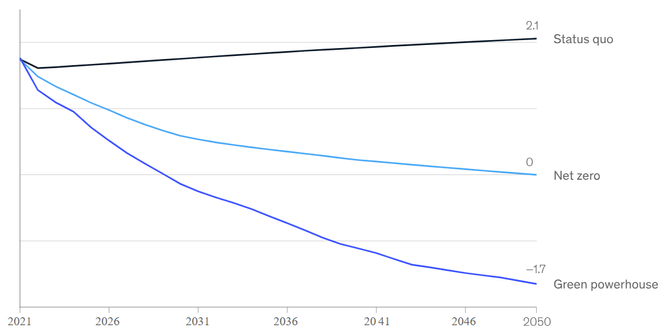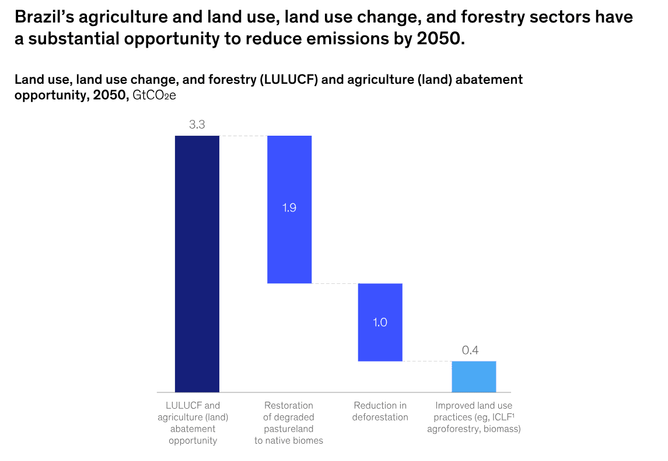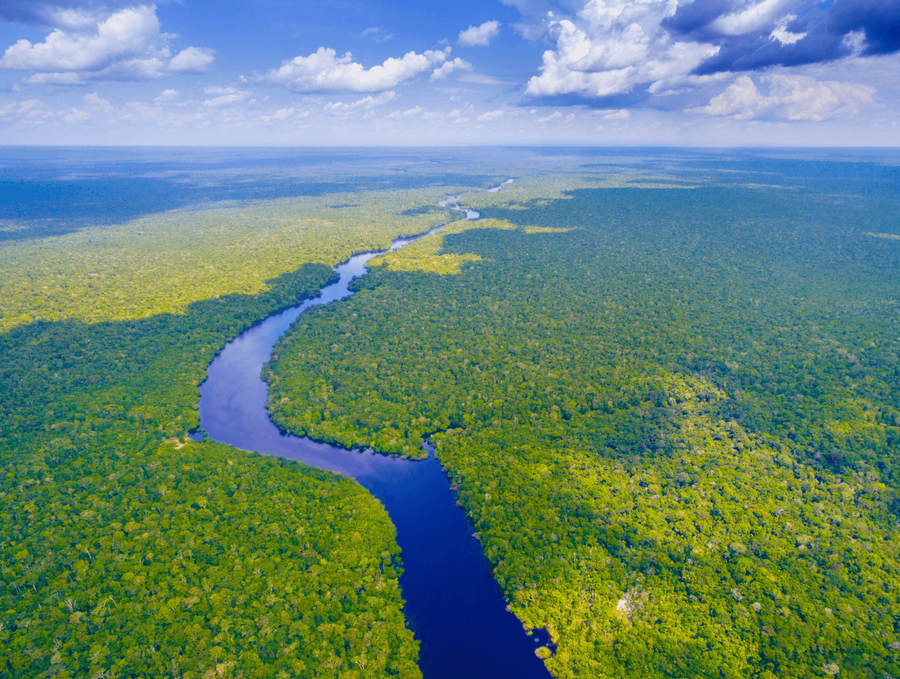McKinsey says Brazil’s natural resources are key to sustainable transition the could boost economy with billions, but progress is needed to unlock this.
Brazil stands out in the sustainable transition with its remarkable renewable energy capacity and exceptional biogenic resources.
A McKinsey report titled Greener Shores: Brazil’s US$100bn decarbonisation opportunity says the nation could be on a trajectory to redefine economic growth through green initiatives, providing a model for sustainable development worldwide.
In anticipation of the 2024 G20 Summit — held in Rio de Janeiro — Brazil’s role on the international stage is growing more significant.
Currently ranked among the top 10 global greenhouse gas emitters, the country’s natural assets present an extraordinary opportunity to aid other regions in achieving more cost-effective and efficient decarbonisation.
“Brazil holds the key to many potential decarbonisation solutions, thanks to its rich natural endowments,” the report says.
“If the country were to take the necessary steps to become a green powerhouse, Brazil’s economy could flourish.”
Nelson Ferreira, Senior Partner at McKinsey and a co-author of this report, says: “Brazil has the opportunity to take a leading position in the global energy transition towards the green economy.”
Brazil’s biogenic potential for sustainable solutions
Brazil’s impressive array of renewable resources, combined with a robust capabilities in biogenic innovation, positions it not only to meet its own sustainability goals but also to become a leading exporter of low-carbon solutions and carbon sequestration services.
The findings point out that Brazil’s role in renewable energy, particularly in solar and wind, could constitute 47% of the nation’s total installed capacity by 2040. This could create an additional market worth US$11bn.
Its expansive hydropower infrastructure could also support intermittent renewable sources, reducing the reliance on expansive battery storage.

“More than 85% of Brazil’s power matrix is based on renewable sources, primarily hydro power, which accounts for about 60%,” says the report.
“While wind and solar represent about 20% of Brazil’s electricity mix today, their cost of energy could decrease by 27% and 46% respectively by 2040, making them the country’s main power sources.”
Beyond electricity generation, Brazil offers substantial opportunities in bio-based solutions such as sustainable biofuels, aviation fuels, biocarbon and biomethane.
The market potential for these products could surmount US$40bn by 2040, with exports playing a critical role.
“The G20 and B20 in Brazil this year makes the world’s spotlight turn here, highlighting the positive trends that have, according to McKinsey estimates, the potential to add up to US$100bn to our economy in the next 10 years,” says Reinaldo Fiorini, Senior Partner at McKinsey and co-author of this report.
Unlocking Brazil’s industrial potential for improved efficiency
McKinsey’s report showcases prospects for enhancing the effectiveness of Brazil’s primary industries such as cement, steel and mining.
Advanced energy management, efficient equipment and material substitutions are among the recommended strategies.
A critical area for growth is Brazil’s municipal waste management, where only 4% is currently recycled — far below the rates observed in other leading economies.
The report says circularity, which promotes the extensive reuse of resources and materials, is pivotal for the nation’s industrial and economic transformation.
Brazil’s carbon sequestration advantage
McKinsey identifies Brazil as having 15% of the global capacity for low-cost natural climate solutions, the biggest alongside Indonesia.
Its land use and forestry sectors, contributing to half of the country’s emissions in 2024, could potentially become valuable assets in the global carbon credit market.

“Brazil alone has the potential to issue CO₂ certificates covering emissions of about 1.7 GtCO₂e per year by 2050,” the report explains.
“This scenario would require the LULUCF and agriculture sectors to contribute with emissions abatement between 2.9 to 3.3 GtCO₂e in 2050 compared with 2021 levels.”
How Brazil can seize the sustainability
To capitalise fully on its potential, McKinsey says Brazil requires a unified effort amongst government bodies, private investors and community groups to develop and expand new sustainable industry chains.
As the McKinsey report concludes: “The leaders of the new sustainable economy will be those who chart bold courses, navigating challenges with confidence while seizing the economic opportunities of the global green economy. Brazil has much to gain both environmentally and economically in embracing boldness.
“If the country were to take the necessary steps to become a green powerhouse, Brazil’s economy could flourish: we estimate it could add as much as US$100bn to GDP and create 6.4 million jobs by 2030.”



